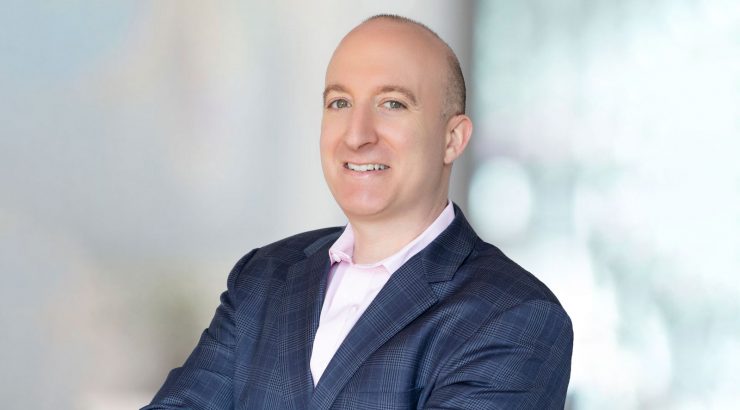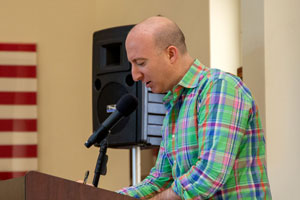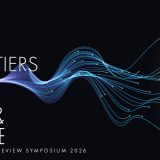
Kennedy Professor in Law Ken Stahl brings State & Local Government conference back to Chapman Law for 10th anniversary Stahl co-founded the annual works-in-progress conference with Fowler School of Law Dean Matt Parlow in 2011
August 5, 2021
When the annual State & Local Government Works-in-Progress Conference returns to the Fowler School of Law for its 10th anniversary this academic year, it will be made possible thanks to the conference’s co-founder, Kenneth Stahl, 2021 Kennedy Professor in Law and director of the law school’s Environmental, Land Use, and Real Estate Law certificate program.
The professorship, one of several established by a $1 million gift made in 2018 by Chapman University Board of Trustees Chair Parker Kennedy, is a rotating honorific designed to support a faculty member with a specific program, initiative or opportunity. For Stahl–a leader in the world of local government scholarship for nearly a decade–bringing back the national conference he helped to launch a decade ago was the obvious focus of his term as the Kennedy Professor in Law.
“Through Professor Stahl’s leadership, the conference has grown in number of attendees and awareness among academics across a variety of disciplines,” said Fowler School of Law Dean Matt Parlow. “It has become one of the most respected annual scholarly law conferences in this area. I’m thrilled that through this funding, Professor Stahl will be able to bring the conference back to the Fowler School of Law for its 10th anniversary.”
Stahl’s scholarly work focuses on the relationship between the local political process and judicial doctrine in land use and local government law. His research combines doctrinal analysis with insights from disciplines including urban sociology, geography, economics, and the humanities. This is exemplified by the content of his latest book, Local Citizenship in a Global Age, published last year by Cambridge University Press.
“The book basically argues that there is such a thing as local citizenship, which is a controversial concept,” Stahl said. “The word ‘citizen’ and the concept of citizenship originated in the ancient Greek city-state. Today, almost by definition, citizenship can only occur at the level of the nation-state. What I show in the book is that that’s not actually true–that you can have local citizenship, and in fact, we do have local citizenship. That competes with, but in some sense sits alongside, national citizenship. These two ideas of citizenship are nested within each other–they can co-exist.”

Professor Stahl presides over a live auction to benefit Chapman’s Public Interest Law Foundation. Stahl was voted “Professor of the Year” in 2008.
A graduate of Yale Law School–where he served as Notes Editor of the Yale Law Journal and an editor of the Yale Journal of Law and The Humanities–Stahl enjoyed a varied career in both legal practice and the public sector prior to joining legal academia. He was an Assistant U.S. Attorney in the Eastern District of New York, a trial attorney for the U.S. Department of Justice, Office of Constitutional Torts, and an associate at the Washington, D.C. law firm of Arnold & Porter. He joined the Fowler School of Law faculty in 2008 and was named Professor of the Year in his first year teaching there. In 2012, Stahl was selected as a participant in Harvard Law School’s Junior Faculty Forum.
Stahl collaborated with Parlow–then a professor at Marquette University Law School, where he was teaching related subjects such as Land Use and Urban Redevelopment–to launch the State & Local Government Works-in-Progress Conference with a few goals in mind, the first of which was to create a “designated forum to present scholarship about state and local government.”
“At the time, the area was relatively small and, in my opinion, overshadowed by other adjacent areas,” said Stahl. “We wanted to have an event that really focuses on state and local government. We also wanted an event where faculty–especially junior faculty–could get good feedback on their work, because that’s difficult to do, to get someone to sit down and read your 50-page paper. So, one of the things that we offered from the beginning was an assurance that if you present a paper, you will have the paper read and someone will give comments.”
The first event was hosted at Marquette, the second at Chapman, and subsequent conferences have been held at law schools all around the country. Although it started small, with about a dozen or so scholars participating, Stahl says the conference has grown not only in size, but in reputation, as the focus on state and local government has “become much more salient” in the last few years.
“A lot of things have happened in the last several years politically that have made state and local government even more important,” Stahl said, “People who didn’t see themselves as local government scholars began to see themselves as [such] because of the event. We’ve drawn people into our community.”
Although the exact dates and format for this year’s anniversary event are still being finalized, Stahl says he’s excited to see not only the return of the conference to the Fowler School of Law, but also the “spirit of community” that it has built over the last 10 years.
“Given the fact that Dean Parlow and I founded the conference together, this really represents a ‘coming home’ for what I think is a signature event for Chapman,” Stahl said. “This has become one of the premier state and local government law events. That’s something that we should be proud of, and I think it’s wonderful that we’re able to use the Kennedy Professorship to continue to support the event.”

